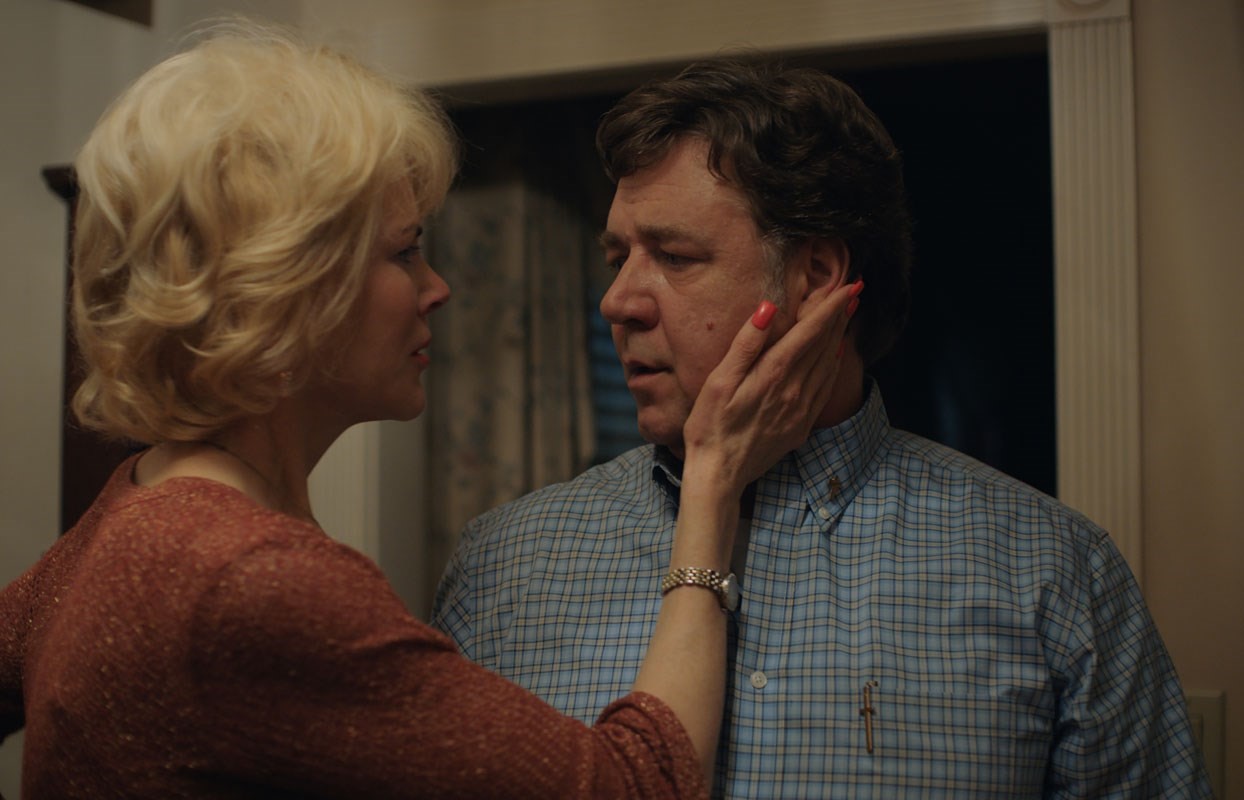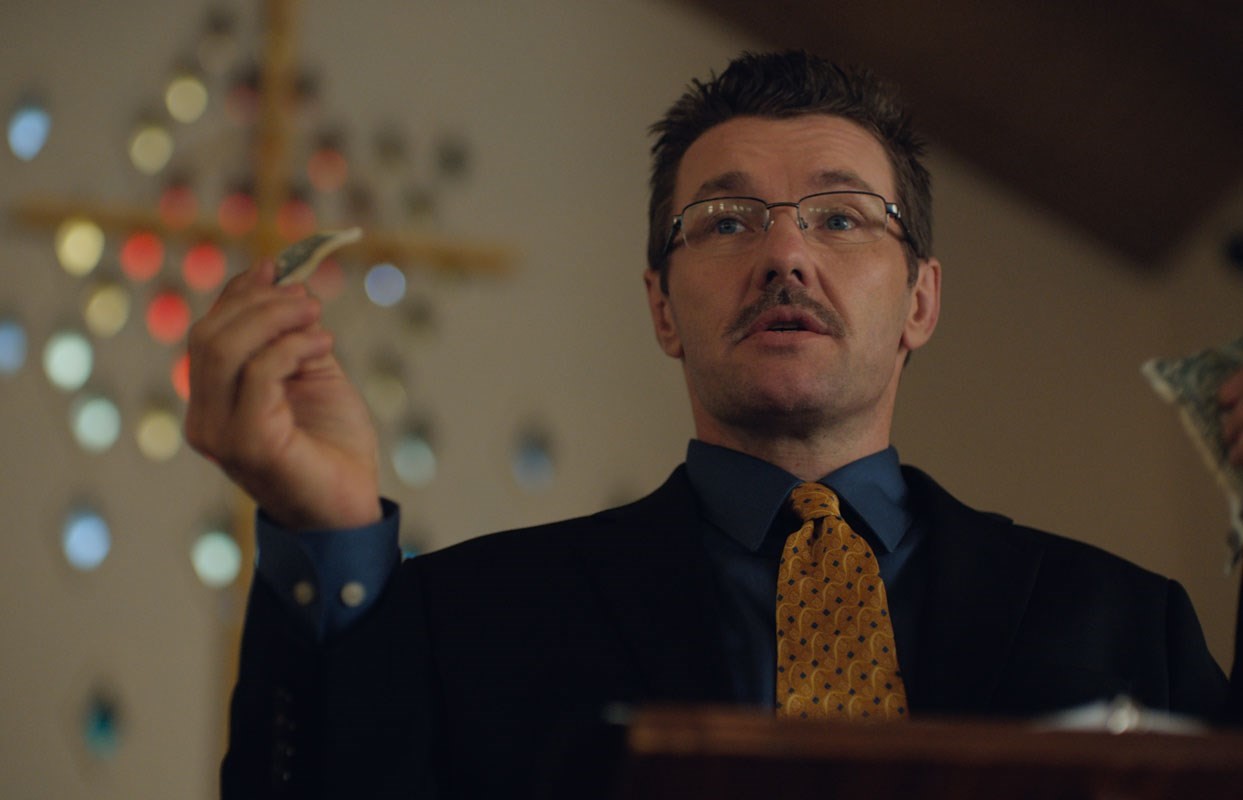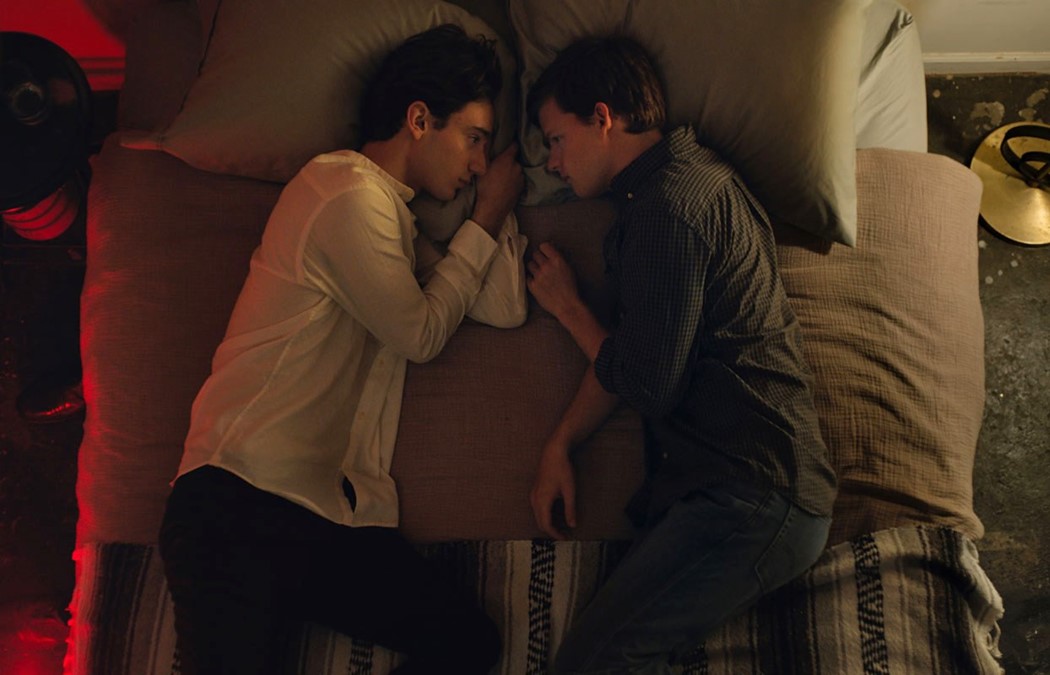My Experience of Gay Conversion Therapy
- TextDaisy Woodward
American writer Garrard Conley was coerced into enrolling in a “gay conversion therapy” – an experience that he would recount in his memoir, Boy Erased, which has now been adapted into film. Here, he shares his story...
This article is part of a series on AnotherManmag.com that coincides with LGBT History Month, shining a light on different facets of queer culture. Head here for more.
When he was 19, American writer Garrard Conley was outed during his first semester of college, following a harrowing sexual assault. The son of strict Baptist parents from Arkansas, he was coerced into enrolling in a “gay conversion therapy” programme called Love in Action. There – like some other 700,000 Americans who have attended conversion therapy to date – he was subjected to humiliation and torment in the name of God, an experience he would recount in his brave and searing memoir, Boy Erased, written over ten years later and published in 2016. Two years on and Conley’s story has now been adapted into a film of the same name, directed by Joel Edgerton and starring a captivating, masterfully understated Lucas Hedges.
The movie offers an unflinching yet unsensationlised account of the deeply inhumane methods of “treatment” forced upon the patients of such institutes, which have found themselves under increasing scrutiny across the US, where New York has just become the 15th state to ban such “therapies”. Here, as the film arrives in UK cinemas, Another Man sits down with the warm and expansive Conley – who now resides in New York City with his husband, and speaks regularly on his experiences of gay conversion therapy – to discuss the aftermath of his time in the so-called Love in Action programme, how he exorcised his past through writing, and the surreal experience of seeing his story played out on film.

“It was probably a decade after leaving gay conversion therapy that I felt comfortable talking about the experience in any detail. Before that point, I would say to people, ‘I went to conversion therapy: it didn’t work.’ That was the extent of it – because I felt so embarrassed about having agreed to go. I finished my college education after coming back from Love in Action, and found myself sort of playing catch up with my peers: reading books, learning about Darwin, which I hadn’t been allowed to do in high school. Like many victims of conversion therapy, I thought for a long time that I just needed to blend in; that my past didn’t define me. I think that’s a coping mechanism that a lot of people have who arrive from vastly different backgrounds into a more liberal setting.
“After that, I travelled the world. I went into the Peace Corps in Ukraine and taught HIV/AIDS training there and then got my master’s in literature. I was happy to put conversion therapy behind me. Then one day, I remember reading a blog by a former conversion therapy patient who said that, when he was with his partner, he would sometimes feel a deep shame, as though his skin was on fire. He wondered if it was a symptom anyone else had experienced, and I recognised it as something that I’d felt so often. I was like, ‘Oh, not everyone feels that every time they have sex? OK, maybe there’s something I haven’t dealt with here.’
“That was when I started to write about my past, without thinking it’d ever be published. I happened to be take a fiction writing course around that time – I’d always wanted to write fiction, not nonfiction – and I wrote 20 pages of my story. People were really astounded. There were a lot of liberal people in that classroom who didn’t know anything about conversion therapy, and I realised then that my story was important – not just for conversion therapy survivors, but for those who needed educating about what was going on in the rest of the country.
“It was around 2012 when I started getting involved in the publishing process. I sold the book on proposal and then had to write the rest. I did that while I was living in Bulgaria teaching in a high school. I would wake up at 4:30am every day, write until 7am and then teach all day. It was exhausting, but there’s something to writing outside of one’s own country, especially when it’s such a personal story. It gave me enough distance to feel safe – like I wasn’t going to get dragged back down into that world.

“The book was published in May 2016 and by January of 2017, I believe, I received an email from a producer at Anonymous Content called Kerry Roberts, who said she’d read my book and wanted to try and find a director to attach to it. She sent it to Joel Edgerton who loved the writing and the story and said he was really interested, which I could hardly believe. When we met, I decided to bring another survivor with me – someone who had been through JONAH, the Jewish version of conversion therapy – to show a different side to the story. We all spoke, and that was it for Joel. I think the story became so real to him in that moment.
“He quickly wrote a script and later came to Arkansas with Lucas Hedges. They had a barbecue with my mom and dad; we went to Walmart; we even spent an afternoon with my childhood doctor, who’s played by Cherry Jones in the film and described in detail in the book. It was a really wonderful experience seeing that someone cared enough about my story to really get the details right.
“That said, I decided early on – because I trusted Joel and film’s not my medium – that I should just hand it over and accept certain things would differ tonally from the book. Joel wanted to strike into the hearts of people who were not quite as far along as a lot of my friends were – people like my parents – and there are some sacrifices you have to make in addressing an audience like that. I’m a big fan of The Miseducation of Cameron Post, which I consulted on, because it was great take for our own community to watch; it’s got a somewhat campy tone while still maintaining some seriousness. But, from what I’ve heard from equality groups around the country, Boy Erased is a film that can used for activism; it can be screened to people who are trying to do the right thing but aren’t quite there yet. And survivors can take their family members and say, ‘This is what I went through,’ which is wonderful.
“There was no point at which watching the film was an enjoyable experience for me. It was very surreal. What disturbed me the most, and I’m sure it disturbs a lot of survivors, is seeing the experience objectively. Joel has basically filmed an exterior version of the events that happened in my memoir, and Lucas is so great at almost silent acting throughout the whole film that you can see every grimace, every pained expression on his face. When you’re going through it, you don’t know what it might look like to the rest of the world, you just feel this very interior turmoil, so viewing it from the outside was painful, honestly. It also looks way crazier, seen objectively, than it looks if you grew up in that church, in that environment. In the book I tried to show how the experience of growing up within that world made the whole facility feel like an extension of Sunday school, but in the movie it’s just sort of terrifying.
“It’s a wonderful time for the movement against gay conversion therapy to be happening, with the recent bans being instituted and the former therapist coming out as queer – he did that the week after I spoke in Utah, so I’m claiming that one! I think it’s going to do the most this year that it’s ever done. At the same time, however, there are some court challenges that are a little bit frightening. In Florida, the decision was challenged by a judge and I believe it’s being challenged in New York too, by the same law firm that supported Love in Action in the past and won, and who also won the Masterpiece Cake case. I’m really worried what will happen if this goes to the Supreme Court, because [of the state of] our Supreme Court right now. If this becomes a religious liberty issue, then they could potentially overturn all of the bans that we’ve done so far.
“On the other hand, when a lot of these bans don’t get passed, people get very defeated but I still feel excited because at least it’s been in the news; at least the facts keep getting out there. Right now people are talking about how the American psychological association has said that conversion therapy is harmful – and that could inform the decision of a parent who might send their kid to one of these places. It’s sparking a big debate that gets down to the heart of parental rights and religious liberty: can parents just send their kids to therapy whenever they feel like it? What if the kid doesn’t want to go? What does it mean to have a religious organisation that can get away with almost anything as long as it says that it’s in the name of God?
“I think the biggest message I’d like to get out there to young, queer people of faith is that it’s not incompatible to believe in God and to also be queer. There’s a huge misconception that you can’t do both, but there are a lot of churches that are affirming and their numbers are growing. If we were to take everything the Bible says literally then we couldn’t eat shrimp, or go into a religious building without a head covering; women couldn’t talk. So if you don’t believe any of those things, you don’t have to believe that Jesus personally condemned you. It’s just not true. Jesus would have sat with you at a table and talked with you. When you’re struggling as a queer teen and you’re being told that something that’s sort of keeping you alive, like your faith, is against you, that takes away another support system and can result in a lot of suicidal ideation.
“I think the answer is not telling kids: dump your religion and move to London or New York. A) because that often is not feasible and B) because a lot of people don’t want to cut their connection to their families and their communities. I think that it’s wise to spend some time – if you have the energy, and people aren’t entirely toxic – trying to get people to see your humanity just by showing up in spaces and saying, ‘I deserve to be here too’. That’s tough work and not everyone can or should have do it, but I always try to agree to any religious organisation that asks me to speak because I think it’s important to say, ‘I belong here too’, and to change hearts and minds through storytelling.
“A big turning point for me in this journey was realising that I’m so much more than my sexuality. There was so much emphasis on changing my identity for so long that I really believed the erroneous thought that I was my sexual identity. At conversion therapy they kept talking about it and talking about it – they didn’t ask you any questions about anything else in your life – so it felt, ironically, that that truly was all I was: a gay man. So afterwards, I spent a lot of years thinking that I had to be a good gay man. But when I finished writing the book I suddenly felt like, ‘OK I can die happy now: I’ve done the thing I was supposed to do. I wanted to write a book and I have, and I’m getting it published.’ Perhaps that sounds a bit morbid, but that’s when I suddenly realised, ‘Oh you can be so much more than your sexual identity.’ Being a writer meant more to me than my sexuality – although you can’t erase either one, of course. And now I no longer feel that I have to fit into some definition of a queer person, which is wonderful, I can just be myself.”
Boy Erased in in UK cinemas now.












